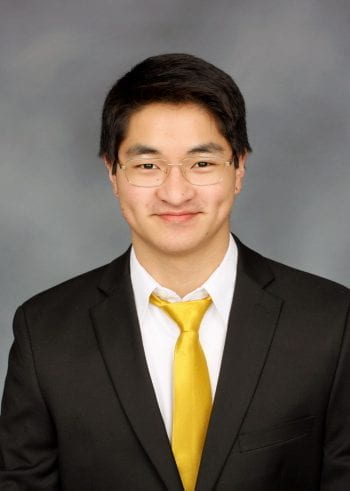ENST Impact Intern Applies Architecture Knowledge to Energy Burdens in St. Louis

In the fall of 2021, Austin Tsailin served as a Renewable Energy & Affordable Housing Intern for Idleburg Consultants as part of Environmental Studies’ Impact Internship program. Austin reflects below on his experience as an impact intern, and how he applied knowledge from his academic program to address a real issue for a St. Louis organization. This article has been edited for length and clarity.
I began my internship with Idleburg Consultants by researching possible solutions to disproportionately high energy costs experienced by low-income households, a problem called an “energy burden.” Idleburg Consultants is part of a coalition called Missouri Energy Efficiency For All (MOEEFA) which is dedicated to helping repair racial inequities around energy and housing. In my effort to find the most effective, innovative, and realistic solutions to reducing energy costs and increasing energy efficiency, I found that pairing energy efficiency practices alongside smart and renewable technologies allows us to dramatically reduce energy burdens for low income households.
With this information in mind, I created a reference guide summarizing the important components of my research in an easy-to-read booklet. I also created a simple project demonstrating the innovations that I researched into a conceptual project. Upon completing the project, I presented the reference guide and project to MOEEFA. With this information, I hope they are better equipped to adopt advancing energy technologies and progressive construction strategies to reduce energy burdens.
This internship has helped me understand how the skills that I have been developing within my architecture major can help me make the community a more livable and thriving place. I have always felt a slight disconnect between the education I get at school and my goal of using architecture to help the world, because I believe my architecture program pushes students towards a more modern and expensive design approach. By channeling the technical skills I acquired from my studies in a more functional and practical direction, I have deepened my understanding of how architecture can be applied in different settings.
I believe my work can impact others by providing a more cohesive understanding of energy burdens on low-income households. This understanding will allow for more nuanced and productive approaches to solving these problems. This issue is bipartisan and important for all families, so I believe real change can come from a more comprehensive understanding of the issues.
